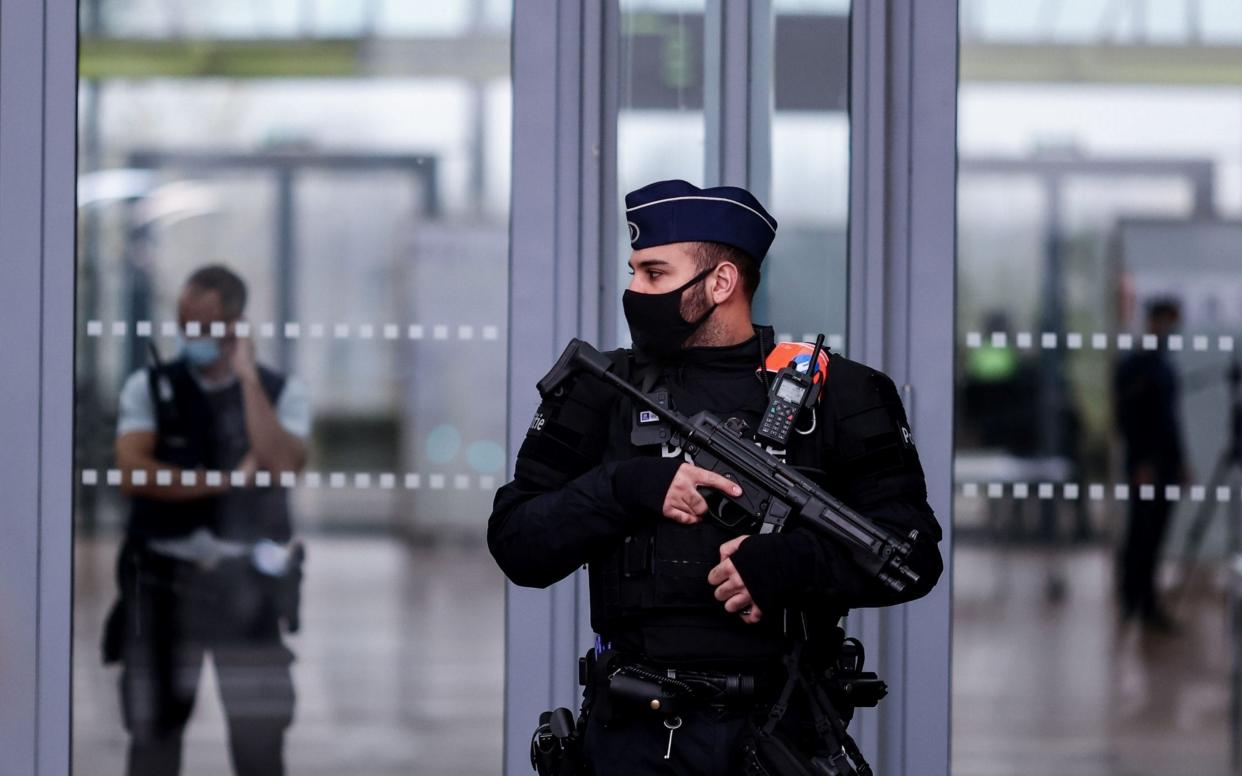Iran diplomat skips trial in Belgium over failed bomb plot

- Oops!Something went wrong.Please try again later.
An Iranian diplomat refused to appear at the first day of his trial in Belgium on Friday, where he and three others face charges of plotting to bomb an Iranian exile opposition meeting in France that was attended by five British MPs.
Antwerp prosecutors accuse Vienna-based diplomat Assadolah Assadi and three co-defendants of conspiring to attack a 2018 rally of the Paris-based National Council of Resistance of Iran (NCRI).
Labour's Roger Godsiff and Conservative MPs Bob Blackman, Matthew Offord, Sir David Amess and Theresa Villiers, attended the event in Villepinte near Paris, where US President Donald Trump's lawyer, Rudy Giuliani, gave the keynote speech.
“Had the plot remain undiscovered, it would have been Iran’s biggest ever state-sponsored terrorist act,” claimed Mr Blackman, who is one of 25 civil parties to the case.
“It is time to hold the Iranian regime accountable for its repression and home and now in Europe,” he told The Telegraph.
The trial is the first time a European Union state has prosecuted an Iranian official for terrorism.
"I think the words 'brave little Belgium' are entirely appropriate today," said Rik Vanreusel, a lawyer representing participants at the rally. "We are one of the only countries that has dared to put such rather politically sensitive matters in a proper perspective."
Mr Assadi, 48, denies the charges and did not cooperate with investigators. Lawyer Dimitri De Beco said his client claimed diplomatic immunity.
He was arrested while on holiday in Germany, where prosecutors say immunity did not apply.
Lawyers for the plaintiffs argue that diplomatic immunity cannot be used to evade prosecution where the charges are terror related, which carries a maximum penalty of 20 years imprisonment.
According to a police report obtained by Reuters, Mr Assadi warned authorities in March that unidentified groups could carry out retaliatory attacks if he was found guilty.
Tehran dismisses the charges against him as a “false flag” plot by the NCRI, which it calls a terrorist organisation.
But French officials say Mr Assadi, who was the third counsellor at Iran’s Austrian embassy, was directed from Tehran to carry out the attack. France says Iran’s intelligence ministry was responsible for the plot and subsequently expelled an Iranian diplomat.
Belgian authorities say he gave a Belgian couple of Iranian origin half a kilogram of explosives and a detonator, which they believe he brought to Vienna from Tehran aboard a commercial flight.
The explosives were found in the car of the couple, Nassimeh Naami, 36, and Amir Saadouni, 40, when they were arrested in Brussels in a joint operation involving Belgian, French and German security services.
They are charged alongside another alleged co-conspirator Mehrdad Arefani, 57.
Their lawyers deny they planned to kill anyone at the rally, which was attended by an estimated 25,000 people, including a delegation of 35 Britons, according to the NCRI.
The NCRI is the political wing of the People's Mojahedin of Iran, otherwise known as the MEK, which supports the overthrow of the Iranian government. The group carried out a series of attacks against the government in the 1980s.
The MEK was removed from EU and US terrorism blacklists in 2009 and 2012 respectively after renouncing violence and following an intensive lobbying effort. The trial, which may deliver a verdict as early as the end of the month, could strain relations between Iran and the EU.
The 2015 nuclear deal promised to improve relations between Iran and the West but European countries have subsequently accused Tehran of several attacks against opponents abroad.
These included two killers in the Netherlands in 2015 and 2017 and a failed assassination in Denmark, all of which Tehran denied involvement in.

